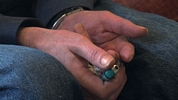|
|
 Acne (1,500) Acne (1,500)
 Addictions (1,500) Addictions (1,500)
 Advice (1,500) Advice (1,500)
 Allergies (1,092) Allergies (1,092)
 Alternative Medicine (1,500) Alternative Medicine (1,500)
 Anti Aging (1,500) Anti Aging (1,500)
 Breakup (1,500) Breakup (1,500)
 Cancer (1,499) Cancer (1,499)
 Dental Care (1,500) Dental Care (1,500)
 Disabilities (1,500) Disabilities (1,500)
 Divorce (1,500) Divorce (1,500)
 Elderly Care (1,498) Elderly Care (1,498)
 Goal Setting (1,500) Goal Setting (1,500)
 Hair Loss (1,500) Hair Loss (1,500)
 Health and Safety (1,497) Health and Safety (1,497)
 Hearing (1,500) Hearing (1,500)
 Law of Attraction (1,499) Law of Attraction (1,499)
 Marriage (1,500) Marriage (1,500)
 Medicine (1,497) Medicine (1,497)
 Meditation (1,499) Meditation (1,499)
 Men's Health (1,500) Men's Health (1,500)
 Mental Health (1,500) Mental Health (1,500)
 Motivational (1,500) Motivational (1,500)
 Nutrition (1,495) Nutrition (1,495)
 Personal Injury (1,499) Personal Injury (1,499)
 Plastic Surgeries (1,500) Plastic Surgeries (1,500)
 Pregnancy (1,496) Pregnancy (1,496)
 Psychology (1,500) Psychology (1,500)
 Public Speaking (1,500) Public Speaking (1,500)
 Quit Smoking (1,500) Quit Smoking (1,500)
 Religion (1,499) Religion (1,499)
 Self Help (1,500) Self Help (1,500)
 Skin Care (1,500) Skin Care (1,500)
 Sleep (1,500) Sleep (1,500)
 Stress Management (1,500) Stress Management (1,500)
 Teenagers (1,492) Teenagers (1,492)
 Time Management (1,500) Time Management (1,500)
 Weddings (1,500) Weddings (1,500)
 Wellness (1,500) Wellness (1,500)
 Women's Health (1,500) Women's Health (1,500)
 Women's Issues (1,500) Women's Issues (1,500)
|
Current base theory for most Treatment
What is the essence of addiction from a scientific standpoint? What facts support the foundation that supposes that an “addict” has no control and that free will has nothing to do with their ability to stop? What indicates that without help, they have little or no hope of recovering, from this “state of addiction” that has occurred in their brain?
The overwhelming, compulsive, uncontrollable use of drugs is a central factor in the life of an addict. Their need to satisfy the cravings becomes dominant in all behavior. It does not matter what drug they choose. Nothing will satisfy the overwhelming craving except their drug-of-choice. Meth users will not settle for heroin. Heroin users will not be satisfied with marijuana. Crack users have no desire for downers (sedatives, painkillers, etc). It is not about coming down, fearing dramatic withdrawal symptoms, or anything like that, that produces continued cravings (though an addict will use these to justify and rationalize illegal, immoral things that they do to obtain the drug). In fact, there are few withdrawal symptoms associated with crack and methamphetamines, two of the most addictive substances known. It is not the physical part that matters. It is truly the psychological aspect of addiction that produces cravings that result in continued use of and progressively, using more and more of the chosen drug. It’s actually more like “the drug chose them”, for the addict. Free will and the ability to turn away from drugs is no longer an option. An addict cannot do this for his job, his health or, sadly, even his mother or his wife; not even for his own children. Physical harm, jails and prisons, and often even the possibility of death are just obstacles to be overcome in the insatiable need for, and quest to obtain, the addicts' drug-of-choice! Having lost the ability to choose not to use the drug, the addicts' life progressively centers more and more on the drug. Drugs become the reason to get up and get out of bed. Drugs become the excuse not to do things that discourage their use. They are “thee pleasure” in the addicts' life. Addicts in later stages of addiction will even choose that, drug-of-choice, over the euphoric pleasure of sex! Use of money is prioritized with, obtaining drugs, as number one. You see, the addict has to have that drug! Unless his craving is appeased nothing can be all right for the addict. When they are compulsively obsessing over the need to satisfy the cravings few barriers exist. Principles, rules and morality become non-existent. This is the truth regarding the disease of addiction that changes a user into the fiend that addicts eventually become.
How can this be?
I can’t imagine anyone being that weak!
Don’t they care about anything?
I just can’t understand what is wrong with him!
Doesn’t she see what is happening to her life?
ADDICTION IS A DISEASE OF THE BRAIN,, RESULTING IN FUNDAMENTAL, LONG LASTING CHANGES!
You are going to need to remind yourself that addiction is a chronic,
progressive, fatal disease… At the same time, seeing it as a disease cannot be an excuse… its being a disease is the “reason” for many things, but not an excuse. Addiction is a “treatable” disease even though it is chronic and subject to relapses. As with most potentially fatal diseases, addiction often requires more than one episode of treatment.
Understand this; you are an addict because drugs have changed your brain. Your state of being has been totally taken over by the drug. Learn to equate this disease with diabetes. It is not cured. It is held back by multiple ongoing episodes of treatment. As with most diseases, often a crisis occurs that requires more than the daily maintenance that suffices most often. This is most often a relapse into using.
Though addiction is a disease of the brain, it is also much more than that. It is far more complicated because of the fact that the human brain is the most complicated organ in any living organism. The brain controls every system in the body. Every characteristic unique to the human being is a result of our uniquely complicated brain. The human brain produces things that are mostly exclusive to humans. Conscience, remorse, morality, philosophy, religious beliefs, science, mechanics, and the list goes on… drugs have fundamentally caused long lasting changes in the addict, in the thing responsible for all of this… the Brain. Is it any wonder that you have trouble understanding the problems that result from addiction?
NEUROTRANSMITTERS: chemicals in the brain that are responsible for communication between the nerve cells of which the brain and all of the nervous system are composed… The cells themselves and a few very unique organs in the body produce these type of chemicals.
Don’t worry, this chemistry lesson is about as complicated as we’ll get!
“DOPAMINE”
The changes in levels and availability of this neurotransmitter or brain chemical, somehow cause changes at a cellular level that translate into compulsive, uncontrollable drug use on the behavioral level! This means that these brain changes, over time, get translated into behavior changes. this is why you are bewildered at what you observe.
ABOUT DOPAMINE:
Initially, people take drugs because they like what they do to their brain. Amid a whole series of brain changes, one is a surge of Dopamine, that occurs when the drugs we commonly classify as addictive, are taken. When a drug produces a really sharp spike in Dopamine it is extremely pleasurable. The odds are very high that one will experience extreme euphoria with this drug, and it will be addictive! It’s no surprise that Dopamine is the brain chemical involved in signaling all of our normal pleasurable experiences, such as… Sex, eating, laughter, love, smoking, and surely, getting high. Here the problem arises! After taking drugs for a lengthy amount of time, this includes all addictive substances we know of, the addict’s Dopamine levels are generally lowered. This in itself will cause a nearly complete personality change. Some people experience chronic dysphoria and/or depression as a result. Major behavioral changes become apparent at this point. This then is no longer the person that you once knew. They now have a basically different brain, as if the mad scientist accidentally transplanted the “wrong” or “bad” brain. This is hard to accept if you don’t know the things that you are now learning. To learn more go to my Web Site, Addiction: Why Me?
|
|
|



